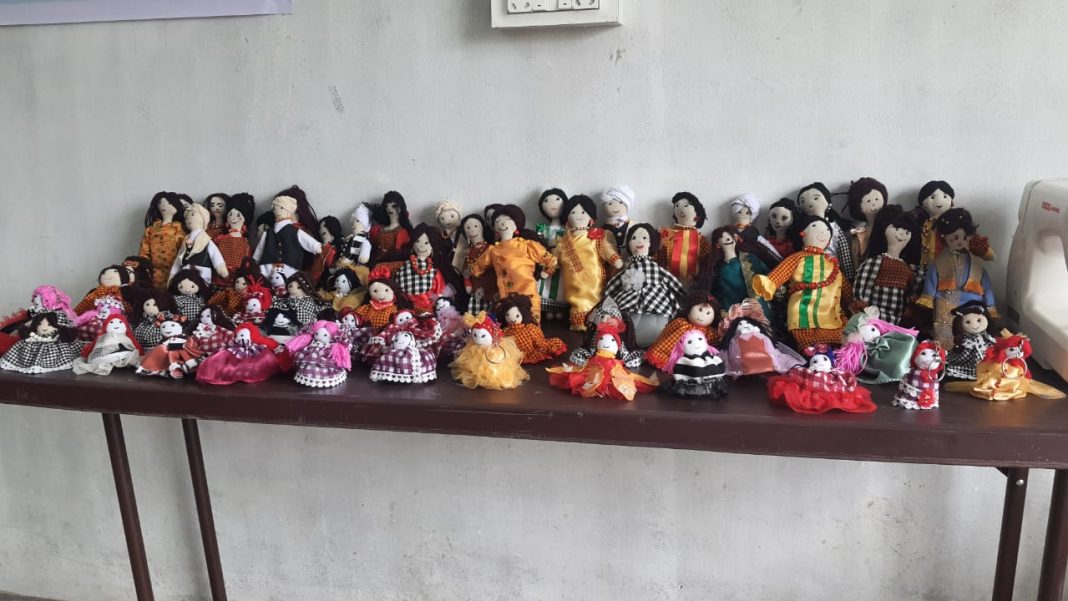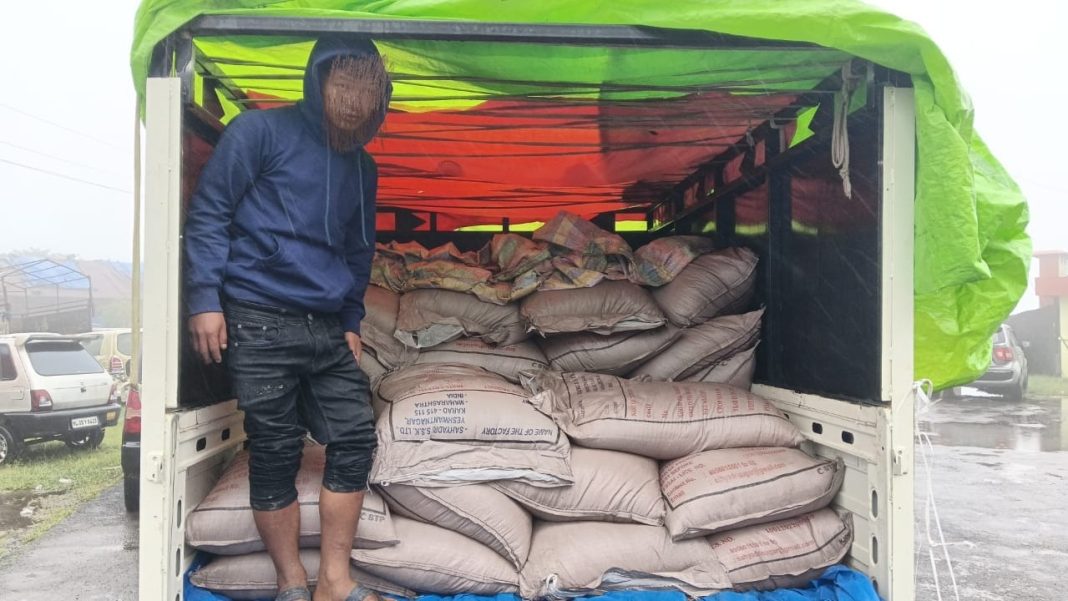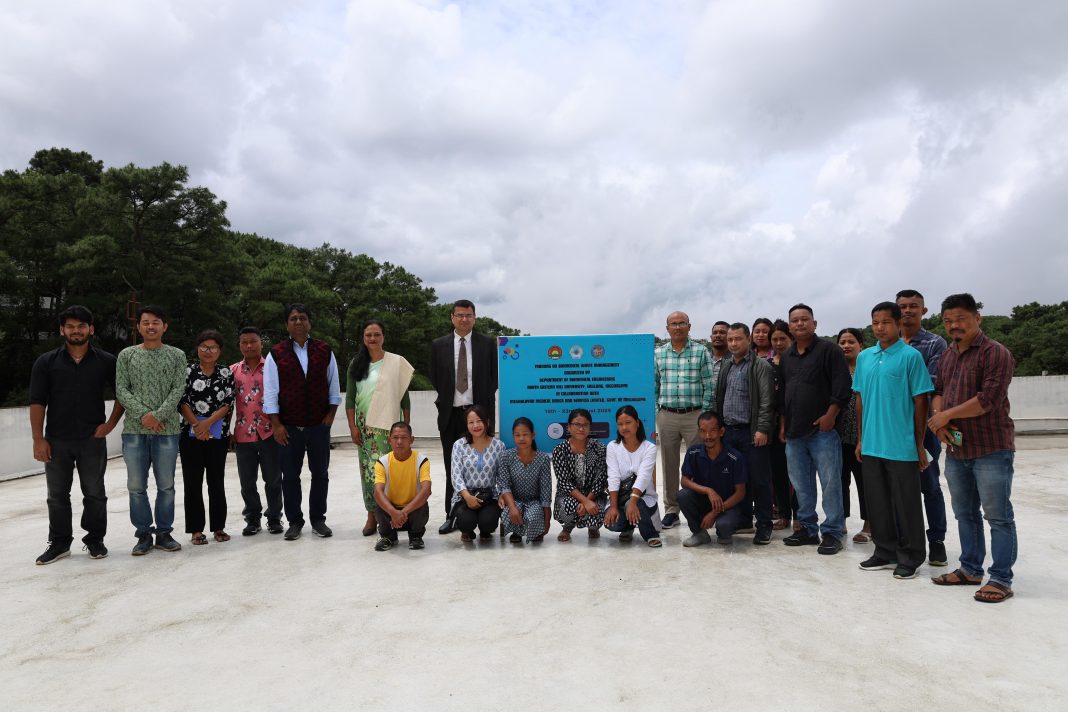Shillong, Aug 21: The Society for Urban and Rural Empowerment is (SURE) in its role as training provider (TP) for the Meghalaya State Skill Development Society (MSSDS) is innovating new idea for training the youths. “We do not want to provide the usual run of the mill training, but instead we want to innovate and come up with new business idea. This time around we want to revive the making of “khon Mu-ke” the traditional doll of the Pnar” said Dr H.H. Mohrmen NGO head of SURE. The one month training was held the Society’s Training Centre at Thluwania, Ladthalaboh, Jowai.
Speaking to this reporter, Ibaphimon Shylla the master trainer said that this is not just another doll, the doll that we are making is traditional doll and it is not like any other doll one see in the market. When asked how did this idea came? Dr H.H. Mohrmen the head of SURE said that “the idea came to him when he remembered his late sisters making dolls when they were kids.” In fact everywhere naturally children would make their dolls with whatever rags or torn out cloth they can hold their hands on. Every culture every society has their own tradition of making dolls and girls would always have their own way of making a doll. “In our tradition also we have our own doll which is traditionally know as “khon mu-ke” or just Mu-ke,” so the idea of making our doll is from our own culture,” Dr Mohrmen said.
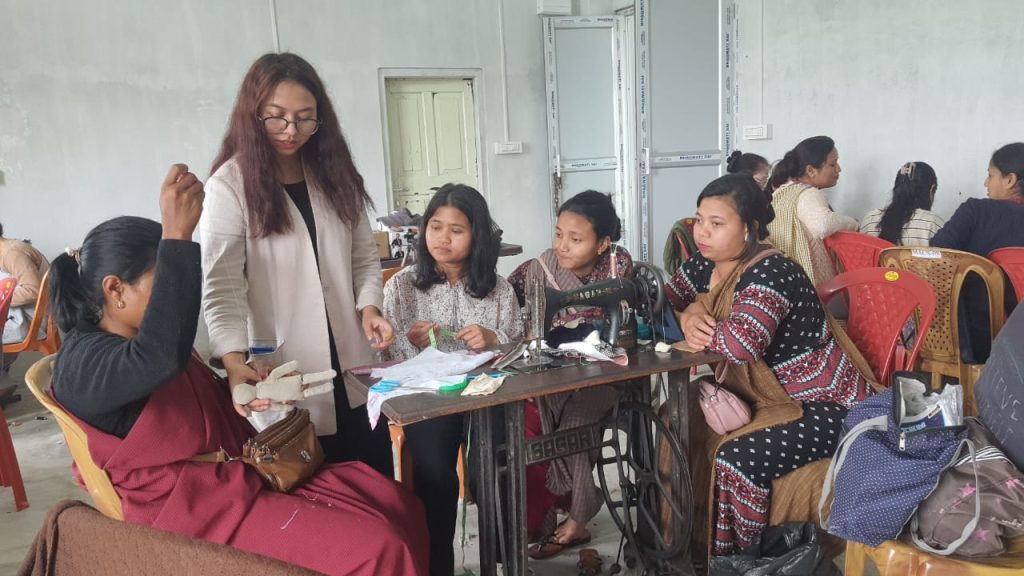
What is so special about your doll that people will buy it? “As much as we can we try to make our doll have a traditional look, the dress or the attire will be as per our traditional dress. So we are going to dress them up with “khyrwang, thoh-saru, muka, ryndia and we are also going to make them wear Pnar and Khasi saris for female doll” said Ibaphimon. The people of Jaintia have rich traditional dress so we are sure that our dolls are going to have a good, colourful and attractive look. We are also going to make them wear ‘Paila, khadu, laket and kynji or necklace, bracelet which are the traditional ornaments of the Pnar” added Ibaphimon. So, basically we are making dolls which will wear our own traditional dress and that will be the unique selling point (USP) of our dolls, she added.
When asked about the idea of making traditional doll, Ibaphomon said “I am a qualified fashion designer and I teach at a fashion design tailoring institute at the Mihmyntdu, but it was Dr H.H.Mohrmen who suggested to me and my sister Niwanka who is working as Project Coordinator with SURE to explore the idea of making traditional doll”. Ibaphimon said “Dr Mohrmen also said that SURE can request for training on making traditional doll from Skill Meghalaya”. On the other hand I assured him that we can surely do it and we came up with a model. Along with Ilasiewdor Gashnga, Felishia Liam the staffs of SURE and with the support of ma Lambor Suchen District Skill Development Officer, West Jaintia Hills we come up with the training module to conduct training on making traditional dolls.
What about the cost? About the price the trainer said, “We are also hoping that our dolls will be cost effective because some of the materials we use are waste products from my tailoring shop”. Iba said “you see I also have a Boutique at Iawmusiang opposite SBI, Jowai name Phimon Boutique so, rather than throwing the waste cloth, we use them to make these dolls so we hope that the price of our dolls are going to be competitive”. We are also making three types of dolls, ordinary dolls, hanging dolls and keychain dolls.
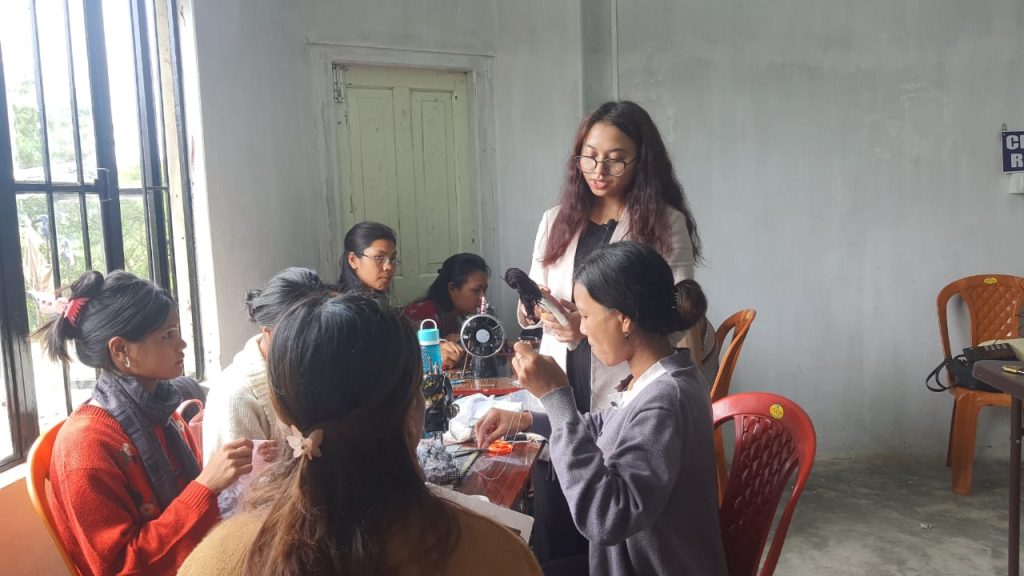
When asked where is your market? They already see a ready market for their products, Ibaphimon said, “our immediate market are the many souvenir outlets which sell handicrafts and other souvenirs, but our major emphasis will be the tourist spots in the district”. They are also planning to use online and social media platforms to sell our dolls. Ibaphimon also said that these dolls can be used as return gifts during wedding, “so we are sure that there is a good market for our products.”
Lina Timung who is from Barato village was very optimistic about the fact that the training can help her start her own business. She said, with doll making we can start small and expand as we grow and she is very sure that she will start making doll because her family also has a tailoring shop and can use the waste cloth from their shop.
S. Suchiang from Jowai said that she is very hopeful that the training will help her start a business but she is not sure as of now. One thing that all the 30 trainees are in unanimity is that once they started uploading the images of the dolls they made on their social media accounts, all their friends not only appreciated the dolls but they also wanted to know if they can buy the dolls. “So you see there is a ready a market for our dolls”, conclude kong Shylla.

